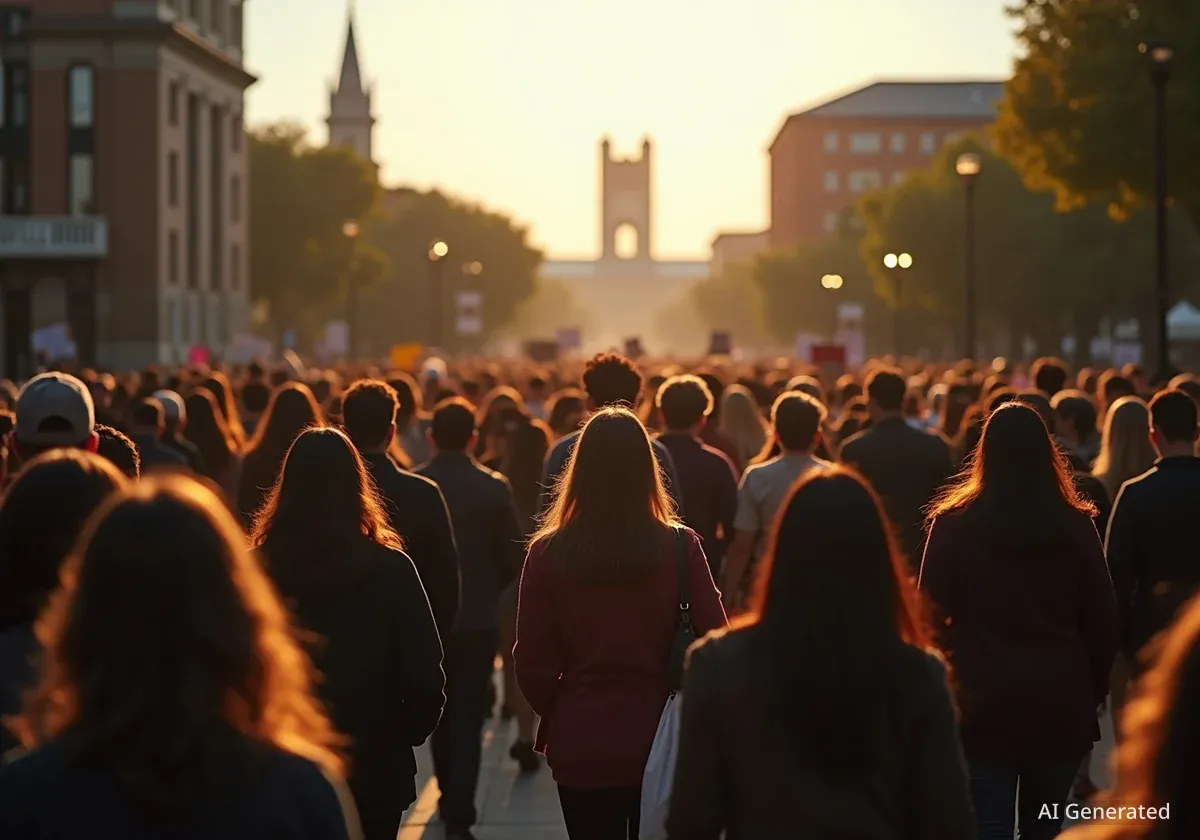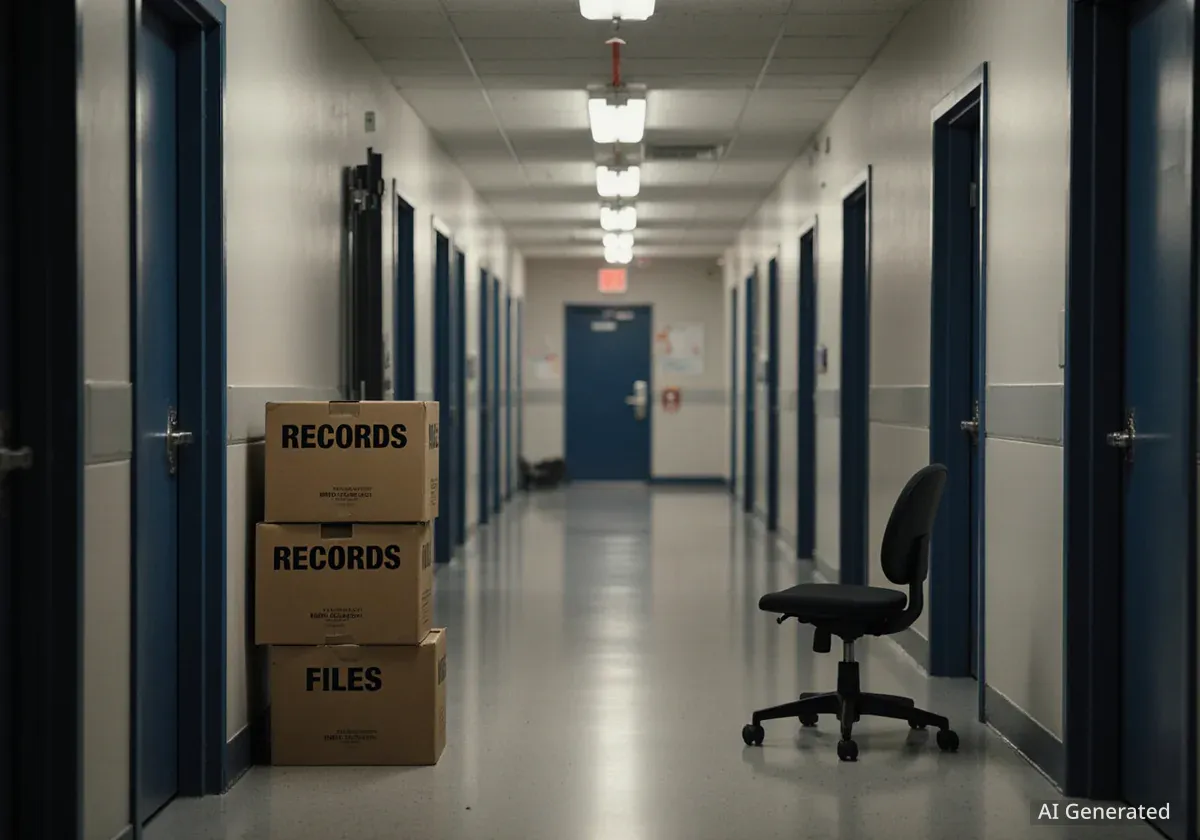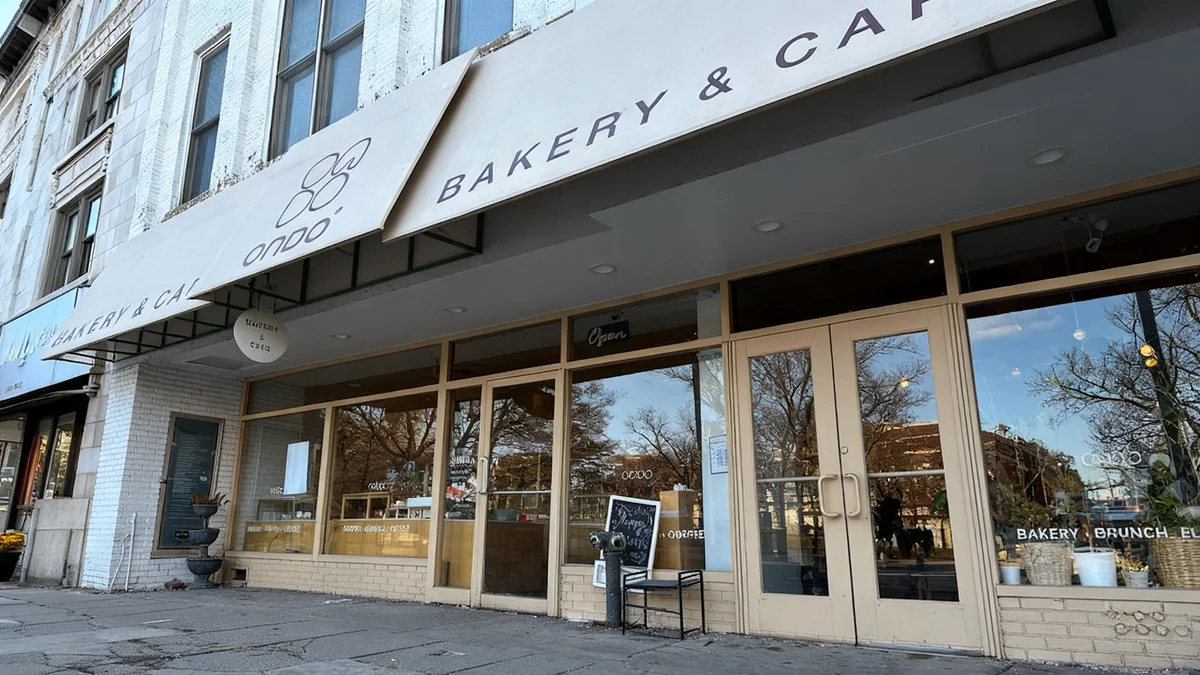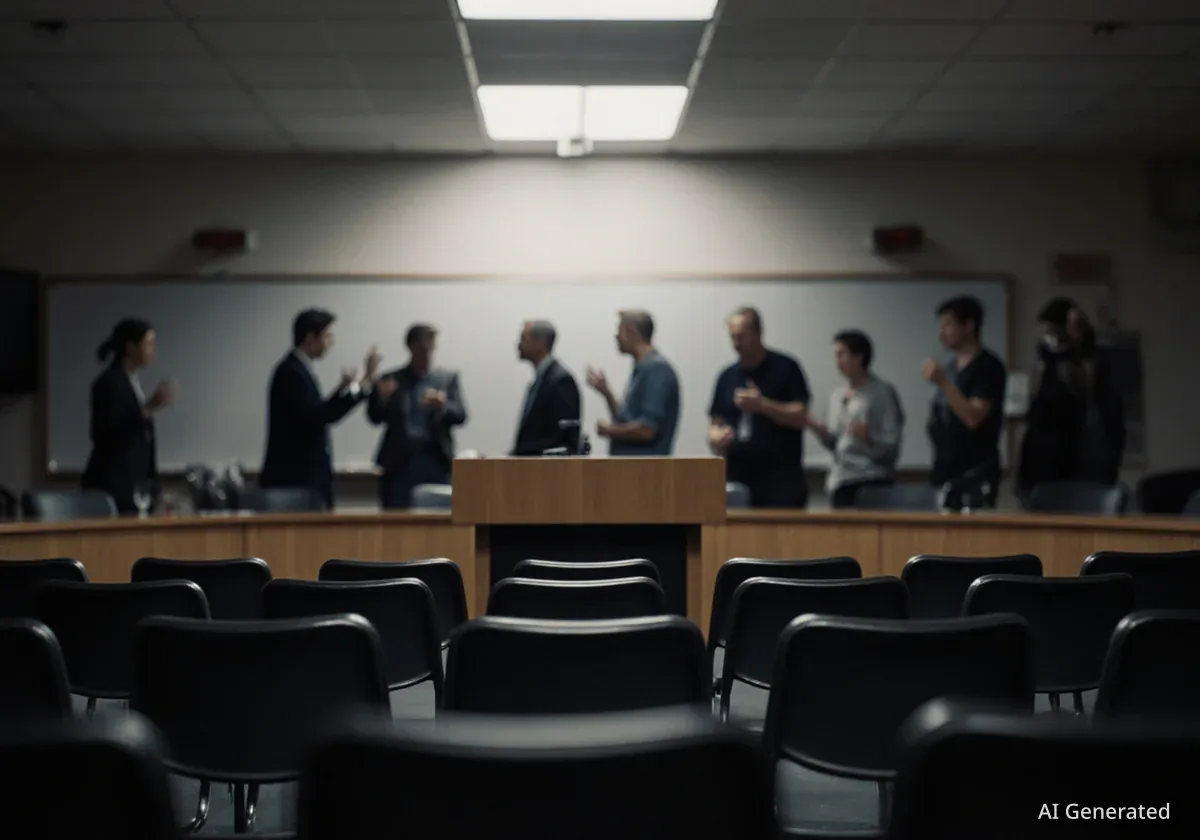Approximately 150 Duke University employees, students, and Durham community members held a demonstration during the university's Founders' Day weekend. The group marched near East Campus, urging the institution to increase investment in the local community and improve worker compensation.
The protest highlighted a growing call for the university to address issues such as a living wage, affordable housing, and financial contributions to city services. Organizers presented a clear choice for the institution: support its workers and the city of Durham or continue to prioritize wealthy donors.
Key Takeaways
- A coalition of workers, students, and residents protested at Duke University, demanding greater community and employee support.
- Key demands include a $25 minimum wage and Payments in Lieu of Taxes (PILOTs) to fund city services.
- The protest was timed to coincide with Duke's Founders' Day, aiming to redefine the university's legacy as being built by its workers.
- A petition supporting these demands has gathered over 10,000 signatures, indicating broad community concern.
A March for Durham's Future
The demonstration began at Saint Joseph’s Episcopal Church and proceeded to the entrance of Duke's East Campus. Participants included a diverse coalition representing various facets of the Durham community. Among them were members of the Union of Southern Workers (USSW), the Duke Graduate Student Union, Durham For All, the Durham Association for Educators, and Siembra NC.
Keith Bullard, deputy director of the USSW, initiated the event, leading the group in chants such as, “Hope is rising, justice is rising and Durham is rising.” The central message was displayed on a large banner that read, “Duke stand with Durham, not with billionaires.”
The event's timing was intentional. By holding the march during Founders’ Day, a weekend traditionally reserved for honoring the university's wealthy benefactors, protesters sought to shift the focus. They argued that the true foundation of Duke University rests on the labor of its employees and the support of the surrounding community.
Reframing Founders' Day
Founders' Day was established by Duke's Board of Trustees in 1901. It has historically served as a time to recognize the financial contributions and legacies of the Duke family and other major donors. The protesters used this occasion to present an alternative narrative, emphasizing the contributions of generations of workers.
Voices from the Community
Speakers at the event shared personal and collective grievances, calling for systemic change in the university's relationship with its employees and the city.
Redefining the University's Foundation
Mike Ramos, a senior at Duke, introduced the immigrant advocacy group Siembra NC and articulated the protesters' perspective on the university's history.
“We're here today... standing for what's right, because today we're honoring the real founders of Duke: Durham workers, Black, brown, immigrant communities that have kept this institution going for the past century,” Ramos said.
This sentiment was echoed by Prince Williams, an organizer with USSW. He drew a historical line from the institution's reliance on enslaved labor to its current dependence on what he described as underpaid "working-class Black and brown employees." He called it “the same old story,” suggesting a pattern of exploitation that continues today.
A Petition with Broad Support
The core demands of the protest are outlined in the Durham Rising petition. According to organizers, the petition has already received more than 10,000 signatures, showing significant public backing for the movement's goals.
Calls for Dignity and Fair Compensation
The demonstration also served as a platform for faith leaders and local officials to voice their support. Rev. Valerie Male, the priest at St Joseph's Episcopal Church where the march began, criticized the university's practices.
“It is an indictment against institutions that preach equity but practice exploitation,” Rev. Male stated, highlighting a perceived gap between Duke's public values and its actions.
Elijah King, a local waiter and candidate for city council, spoke about the personal struggles of service workers in Durham. “As a wage worker, I appreciate everyone staying in solidarity with each other, because I know what it's like to count tips at the end of the day, hoping to God that pays the rent,” he said.
Specific Demands and a Path Forward
The protesters presented a clear set of demands aimed at improving economic conditions for workers and bolstering public services in Durham. These requests are not just abstract calls for fairness but specific policy proposals.
The Push for a $25 Minimum Wage
A primary demand is for Duke University, one of the largest employers in the region, to implement a $25 per hour minimum wage for all its employees. Proponents argue this would establish a new standard for fair compensation in the city and help alleviate financial strain on thousands of families.
Payments in Lieu of Taxes (PILOTs)
Another major proposal involves PILOTs, or payments in lieu of taxes. As a non-profit entity, Duke University is exempt from paying property taxes, which would otherwise contribute significantly to the city's budget. Protesters are demanding that Duke make voluntary payments to the city to help fund essential public services, including:
- Public schools
- Affordable housing initiatives
- Public infrastructure improvements
- Community safety programs
A Call for Formal Dialogue
Durham City Council member Nate Baker, who attended the march, acknowledged the need for structured negotiations between the city and the university.
“Eventually, we will need to sit down at the table together and have some serious conversations about what fair share actually looks like,” Baker said. He suggested that this initiative could be “formalized” through a “government committee,” though he did not provide specific details on how such a committee would be formed or operate.
The collective message from the crowd was one of resolve. Organizers and participants expressed their commitment to continuing their campaign until the university engages with their demands directly. “So many people in the city of Durham agree with this message,” Ramos concluded. “We know that it's important, and that's why we're standing here today.”





